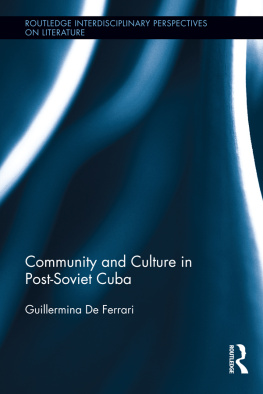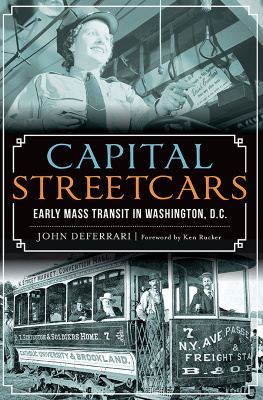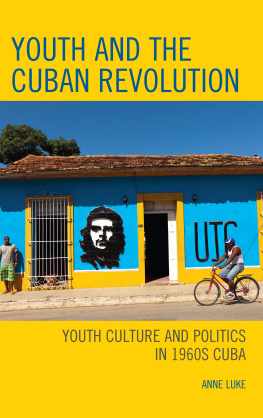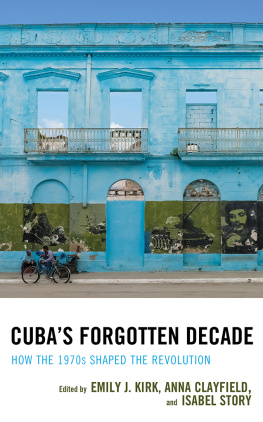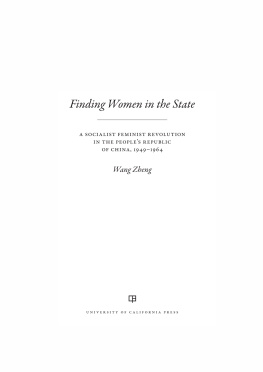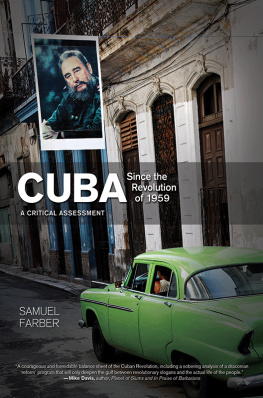Community and Culture in Post-Soviet Cuba
Following the disintegration of the Soviet Union, the globalization of Cuban culture, along with the bankruptcy of the state, partly modified the terms of intellectual engagement. However, no significant change took place at the political level. In Community and Culture in Post-Soviet Cuba, De Ferrari looks into the extraordinary survival of the revolution by focusing on the personal, political, and aesthetic social pacts that determined the configuration of the socialist state.
Through close critical readings of a representative set of contemporary Cuban novels and works of visual art, this book argues that ethics and gender, rather than ideology, account for the intellectuals fidelity to the revolution. Community and Culture does three things: it demonstrates that masculine sociality is the key to understanding the longevity of Cubas socialist regime; it examines the sociology of the cultural administration of intellectual labor in Cuba; and it maps the emergent ethical and aesthetic paradigms that allow Cuban intellectuals to envision alternative forms of community and civil society.
Guillermina De Ferrari is Professor of Caribbean Literature and Culture at University of Wisconsin-Madison, USA. Her previous book, Vulnerable States: Bodies of Memory in Contemporary Caribbean Fiction (2007) studies the metaphorical power of the vulnerable body in comparative Caribbean literature.
Routledge Interdisciplinary Perspectives on Literature
1 Environmental Criticism for theTwenty-First Century
Edited by Stephanie LeMenager, Teresa Shewry, and Ken Hiltner
2 Theoretical Perspectives on Human Rights and Literature
Elizabeth Swanson Goldberg and Alexandra Schultheis Moore
3 Resistance to Science in Contemporary American Poetry
Bryan Walpert
4 Magic, Science, and Empire in Postcolonial Literature
The Alchemical Literary Imagination
Kathleen J. Renk
5 The Black Female Body in American Literature and Art
Performing Identity
Caroline A. Brown
6 Narratives of Migration and Displacement in Dominican Literature
Danny Mndez
7 The Cinema and the Origins of Literary Modernism
Andrew Shail
8 The Gothic in Contemporary Literature and Popular Culture
Pop Goth
Edited by Justin D. Edwards and Agnieszka Soltysik Monnet
9 Wallace Stevens and Pre-Socratic Philosophy
Metaphysics and the Play of Violence
Daniel Tompsett
10 Modern Orthodoxies
Judaic Imaginative Journeys of the Twentieth Century
Lisa Mulman
11 Eugenics, Literature, and Culture in Post-war Britain
Clare Hanson
12 Postcolonial Readings of Music in World Literature
Turning Empire on Its Ear
Cameron Fae Bushnell
13 Stanley Cavell, Literature, and Film
The Idea of America
Edited by Andrew Taylor and ine Kelly
14 William Blake and the Digital Humanities
Collaboration, Participation, and Social Media
Jason Whittaker and Roger Whitson
15 American Studies, Ecocriticism, and Citizenship
Thinking and Acting in the Local and Global Commons
Edited by Joni Adamson and Kimberly N. Ruffin
16 International Perspectives on Feminist Ecocriticism
Edited by Greta Gaard, Simon C. Estok, and Serpil Oppermann
17 Feminist Theory across Disciplines
Feminist Community and American Womens Poetry
Shira Wolosky
18 Mobile Narratives
Travel, Migration, and Transculturation
Edited by Eleftheria Arapoglou, Mnika Fodor, and Jopi Nyman
19 Shipwreck in Art and Literature
Images and Interpretations from Antiquity to the Present Day
Edited by Carl Thompson
20 Literature, Speech Disorders, and Disability Talking Normal
Edited by Chris Eagle
21 The Unnameable Monster in Literature and Film
Maria Beville
22 Cognition, Literature and History
Edited by Mark J. Bruhn and Donald R. Wehrs
23 Community and Culture in Post-Soviet Cuba
Guillermina De Ferrari
Community and Culture in Post-Soviet Cuba
Guillermina De Ferrari

First published 2014
by Routledge
711 Third Avenue, New York, NY 10017
and by Routledge
2 Park Square, Milton Park, Abingdon, Oxon OX14 4RN
Routledge is an imprint of the Taylor & Francis Group, an informa business
2014 Taylor & Francis
The right of Guillermina De Ferrari to be identified as author of this work has been asserted by her in accordance with sections 77 and 78 of the Copyright, Designs and Patents Act 1988.
All rights reserved. No part of this book may be reprinted or reproduced or utilised in any form or by any electronic, mechanical, or other means, now known or hereafter invented, including photocopying and recording, or in any information storage or retrieval system, without permission in writing from the publishers.
Trademark Notice: Product or corporate names may be trademarks or registered trademarks, and are used only for identification and explanation without intent to infringe.
Library of Congress Cataloging-in-Publication Data
De Ferrari, Guillermina, 1966
Community and Culture in Post-Soviet Cuba / by Guillermina De Ferrari.
pages cm. (Routledge Interdisciplinary Perspectives on Literature ; 23)
Includes bibliographical references and index.
1. Cuban literatureHistory and criticism. 2. Literature and society Cuba. 3. Gender identity in literature. 4. Masculinity in literature. 5. Communities in literature. 6. CubaIntellectual life20th century. I. Title.
PQ7378.D43 2014
860.997291dc23
2013033775
ISBN13: 978-0-415-73785-2 (hbk)
ISBN13: 978-1-315-81737-8 (ebk)
To Mario and Paloma.
To my friends.
.
.
.
.
.
.
.
.
.
.
.
.
.
Like many other literary critics and students, I became fascinated in the 1990s by a curious cultural phenomenon: A huge amount of shelf space in bookstores in New York, Madrid, Seville, and Mexico City (remember bookstores?) was dedicated to novels written in a country that history seemed to have forgotten. Those novels shook my foundations. Whereas their fictionality was not in question, imagination alone didnt fully explain the power of these novels or the continuities among them. In no other literature produced at the end of the twentieth century was the context so defining of the way novels were written and the way we were consuming them. In spite of individual differences, they consistently provoked the same two expressions of incredulity: How can so much creativity happen amid so much devastation; and why is the revolutionary government still in place? It was during my first research trip to Cuba in 2001, however, that this book took root in my mind. I was puzzled by a number of contradictions that Cubans are particularly good at: scarcity and generosity, material poverty and intellectual sophistication, chaos and brilliance, isolation and cosmopolitanism, premodernity and post-modernity. But most of all, I was perplexed at the distance between the language of national dignity and the personal sufferingthe indignityI saw everywhere. The first objective of this book was to explain this distance to myself.
Next page
